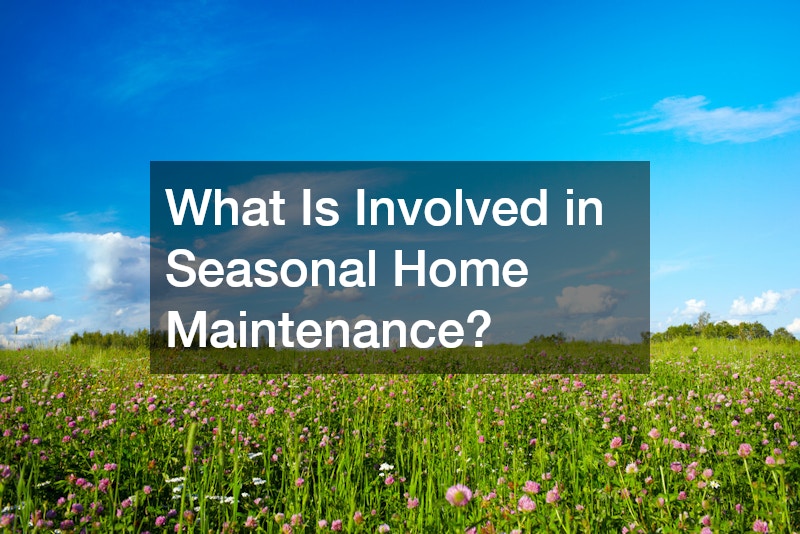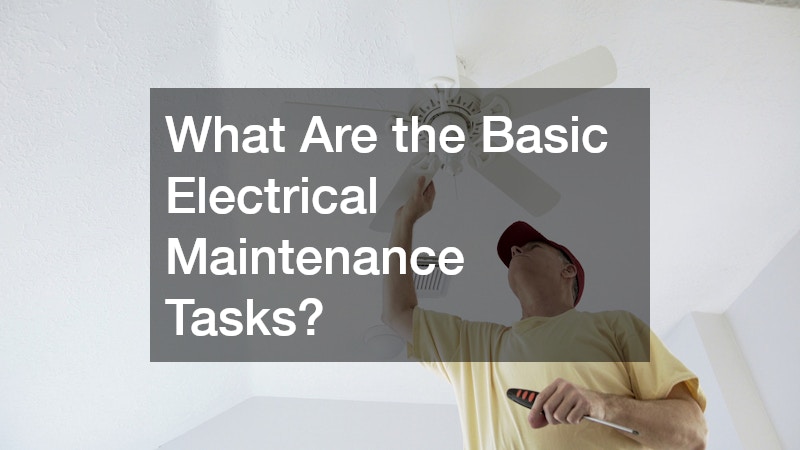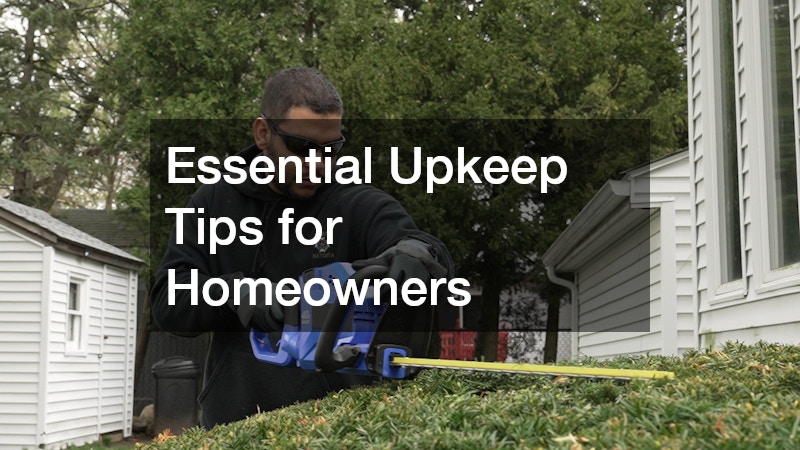Owning a home is a rewarding experience, but it also comes with the responsibility of ongoing care and maintenance. In this comprehensive guide, we explore essential upkeep tips that every homeowner should know to protect their investment and enhance their quality of life. From maintaining vital systems like HVAC units and plumbing networks to tending to exterior elements such as roofing, siding, and landscaping, this article covers everything necessary to ensure your home remains in peak condition throughout the year.
Proper home maintenance is far more than a cosmetic concern. Regular upkeep preserves the long-term value of your property, boosts curb appeal, and minimizes the risk of unexpected, costly repairs. It also plays a crucial role in maintaining a safe, healthy living environment by addressing potential issues early, such as preventing leaks that could lead to mold, recognizing the need for timely roof repair, or ensuring efficient operation of essential appliances.
How Often Should I Inspect My Roof?

Identifying Signs of Roof Damage
Roofs endure daily exposure to the elements, making them susceptible to wear and tear. Common indicators of roof issues include missing shingles, curling or buckling shingles, dark or stained areas, and visible sagging. Water stains on ceilings or walls often point to roofing problems. Regular visual inspections are crucial to identify potential needs for roof repair before minor issues escalate into major expenses.
Seasonal Roof Maintenance Tips
Roof care should align with the changing seasons. In spring, check for damage from winter storms, while summer is ideal for inspecting shingles and flashing. Fall preparation focuses on clearing debris from gutters and downspouts, crucial to preventing roof leaks. During winter, ensure ice dams and heavy snow accumulation are addressed promptly to maintain the integrity of residential roofing systems.
DIY Roof Inspection Guide
Homeowners can perform basic roof inspections using binoculars to examine the surface from the ground. Check for missing or damaged shingles, debris buildup, and sagging areas. Inside the attic, look for water stains or daylight peeking through. Following this DIY approach helps homeowners catch issues early, but recognizing when professional roof repair is needed remains critical.
Hiring Professional Roof Inspectors
Professional inspectors bring experience and thoroughness, identifying subtle issues that DIY inspections might miss. Hiring a residential roofing expert after severe weather, before buying or selling a home, or when signs of wear appear ensures that problems are accurately assessed and addressed.
Costs Associated With Roof Upkeep
Roof inspection costs typically range from $150 to $400, but small preventative repairs save thousands compared to major restorations. Investing in regular roof upkeep and partnering with a reputable company specializing in residential roofing can greatly extend the life of your roof and preserve home value.
What Are the Best Practices for HVAC Maintenance?
Seasonal HVAC Checkpoints
Your HVAC system requires seasonal attention to ensure comfort and efficiency. Before summer, inspect air conditioning components, replace filters, and clear outdoor units of debris. In the fall, prepare heating systems to prevent costly emergency heating repairs during the winter months. Comprehensive seasonal maintenance preserves system performance and lifespan.
DIY HVAC Cleaning Tips
Homeowners can boost HVAC efficiency by regularly changing filters, vacuuming around vents, and clearing condensate drains. Keeping the external unit free of grass and debris also promotes proper airflow, reducing system strain and potential damage.
Recognizing HVAC Issues Early
Signs of HVAC trouble include unusual noises, uneven cooling or heating, higher energy bills, and reduced airflow. Identifying issues early can prevent breakdowns and the need for emergency heating repairs, particularly during extreme weather conditions.
Professional HVAC Servicing
Hiring a professional HVAC technician for annual or semi-annual servicing ensures optimal system performance. Experts check refrigerant levels, inspect ducts for leaks, and test thermostat functionality, making it less likely that homeowners will require urgent HVAC assistance later.
Energy Efficiency Tips for HVAC Systems
Boosting HVAC efficiency involves sealing drafts, insulating ductwork, installing programmable thermostats, and upgrading to ENERGY STAR-rated systems. Smart usage habits and regular maintenance prevent unnecessary strain, lowering utility bills while maintaining a comfortable home.
How Can I Prevent Plumbing Issues?
Regular Pipe Inspections
Regularly inspecting pipes helps homeowners spot leaks, corrosion, and clogs early. Visible pipes under sinks, in basements, and around water heaters should be checked for moisture, discoloration, and rust.
Essential DIY Plumbing Tools
Every homeowner should have a plunger, pipe wrench, plumber’s tape, and hand auger available. These tools enable basic fixes, allowing you to address small leaks or clogs without immediately relying on a plumbing company.
Recognizing Water Damage Signs
Water stains, musty odors, warped flooring, and peeling paint are signs of hidden plumbing problems. Early detection of these signs can prevent extensive water damage and costly repairs that require professional plumbing services.
When to Call a Plumber
Persistent leaks, sewer odors, major clogs, and low water pressure often indicate the need for a local plumber. In emergencies, a reliable plumbing company can quickly diagnose and resolve issues, minimizing home damage.
Preventing Clogs and Backflow
Prevention strategies include installing drain screens, avoiding flushing unsuitable items, and scheduling regular drain cleaning services. Homeowners may also consider backflow preventers to keep water systems safe and functional.
What Lawn Care Strategies Keep Yards Healthy?

Schedule for Lawn Maintenance
Maintaining a healthy lawn involves seasonal planning. Spring is the time to dethatch and fertilize, summer focuses on mowing and watering, fall requires aeration and overseeding, and winter is for protecting sensitive plants.
Essential Lawn Care Tools
A well-maintained yard demands quality tools like a mower, string trimmer, leaf blower, rake, and a hose with a sprinkler attachment. For larger properties, consider investing in an aerator or dethatcher for optimal lawn health.
DIY vs. Professional Lawn Care
While DIY lawn care is cost-effective and customizable, professional lawn care services save time and provide expert results. Homeowners must assess their commitment and skill level when deciding between these approaches.
Pest Control for Lawns
Effective pest control is vital to maintaining a vibrant lawn. Using environmentally friendly pest control methods, such as encouraging beneficial insects and applying natural treatments, can help protect your yard without harming the ecosystem.
Watering Techniques for Optimal Growth
Deep watering early in the morning fosters strong root systems and reduces evaporation. Adjust watering schedules based on rainfall, soil composition, and grass type to keep your lawn lush and resilient throughout the seasons.
How Do I Maintain My Home’s Exterior?
Painting and Siding Maintenance
Inspect siding and exterior paint annually for signs of peeling, cracking, or fading. Promptly addressing these issues prevents water intrusion and extends the life of your home’s exterior finish.
Gutter Cleaning and Repair
Clean gutters at least twice a year to ensure proper water drainage and protect your home’s foundation. Sagging gutters, leaks, and corrosion should be repaired promptly to avoid further damage.
Window and Door Inspections
Check for drafts, cracks, and operational issues around windows and doors. Proper sealing improves energy efficiency and indoor comfort, reducing the load on your HVAC system year-round.
Deck and Patio Care
Decks and patios should be cleaned, sealed, and inspected for signs of wear and damage annually. Routine maintenance preserves these outdoor spaces, adding beauty and functionality to your property.
Pest Prevention and Management
Sealing cracks and gaps around your home’s exterior is a primary line of defense against pests. Partnering with a trusted pest control provider helps prevent infestations and protects the structural integrity of your home.
What Is Involved in Seasonal Home Maintenance?

Creating a Seasonal Maintenance Checklist
A seasonal maintenance checklist helps homeowners stay organized and ensures critical tasks aren’t overlooked. Including inspections for HVAC systems, roofing, plumbing, and exterior structures will preserve your home’s health year-round.
Winterization Tips
Prepare for winter by insulating pipes, sealing drafts, servicing heating systems, and ensuring proper attic ventilation. Preventing frozen pipes and costly emergency heating repairs begins with thorough preparation.
Summer Maintenance Essentials
Focus on air conditioning system upkeep, irrigation system checks, pest control measures, and roof inspections during summer. These efforts ensure comfort and efficiency throughout the hottest months.
Fall Preparation Tasks
Fall is the time to clear leaves from gutters, inspect roofing for damage, and service heating units. Preparing ahead of colder temperatures prevents future issues and costly emergency services.
Spring Cleaning and Repairs
Spring involves deep cleaning, repairing winter damages, servicing the HVAC system, and inspecting exterior paint and siding. Thorough attention rejuvenates your home after a harsh winter season.
How Do I Keep My Appliances in Top Condition?
Routine Appliance Inspections
Frequent inspections for signs of wear and inefficiency in appliances prolong their lifespan and ensure safe operation. Check hoses, seals, and electrical connections regularly.
Basic DIY Appliance Repairs
Address simple appliance problems like replacing worn gaskets or unclogging dishwasher spray arms using DIY skills. Proper knowledge and caution can extend appliance life affordably.
Efficient Appliance Usage
Running appliances only when full, using eco-friendly settings, and turning off devices when not in use saves energy and extends appliance lifespans.
Identifying When to Replace Appliances
When appliances frequently require repairs, operate inefficiently, or exceed their useful lifespan, replacement often becomes the most economical option.
Extended Warranties: Are They Worth It?
Extended warranties offer peace of mind for expensive appliances but require careful evaluation. Weigh the appliance’s reliability and the warranty’s coverage terms before investing.
How Should I Approach Indoor Air Quality?
Importance of Ventilation
Proper ventilation controls humidity, expels indoor pollutants, and introduces fresh air. It is critical for maintaining a healthy and comfortable home environment.
Selecting the Right Air Filters
High-quality air filters improve indoor air quality and protect HVAC systems. HEPA filters are ideal for homes with allergy sufferers, while standard filters suit general needs.
Indoor Plants for Better Air
Plants like spider plants and peace lilies help filter air naturally. Incorporating greenery throughout the home boosts both aesthetics and indoor air quality.
Addressing Mold and Mildew
Prompt mildew removal is essential to prevent health risks and home damage. Keep indoor humidity low, repair leaks, and use dehumidifiers to deter mold and mildew growth.
Air Purifiers: An Overview
Air purifiers eliminate allergens, odors, and airborne particles, making them a valuable addition to homes focused on superior indoor air quality.
How Do I Secure My Home Effectively?
Evaluating Home Security Needs
A thorough assessment of your home’s security vulnerabilities—such as poorly lit areas and unsecured entry points—provides a strong foundation for improving protection.
Installing Security Systems
Selecting a comprehensive security system tailored to your home’s layout enhances safety. Options range from basic alarms to smart, fully monitored setups.
Simple DIY Security Enhancements
Simple upgrades like adding window locks, installing motion-sensor lighting, and reinforcing doors dramatically improve home security without a huge investment.
Smart Home Technology Integration
Integrating smart home security devices such as video doorbells and remote monitoring cameras enhances convenience and real-time protection for modern homeowners.
Monitoring and Maintenance of Security Systems
Consistent testing, software updates, and maintenance checks ensure your security system remains effective and reliable over time.
What Are Some Basic Electrical Maintenance Tasks?

Recognizing Electrical Hazards
Identifying signs like flickering lights, hot outlets, and burning odors is crucial. Prompt action prevents electrical fires and protects your home and family.
Checking and Replacing Outlets
Regularly check outlets for wear and replace them as needed. Upgrading to GFCI outlets in moisture-prone areas enhances electrical safety significantly.
Understanding Circuit Breakers
Familiarity with your home’s circuit breaker system empowers you to handle minor electrical issues and recognize when to call an electrician.
Lighting Maintenance and Upgrades
Switching to LED bulbs and upgrading fixtures improves energy efficiency, enhances aesthetics, and reduces maintenance costs over time.
Professional Electrical Inspections
Scheduling professional inspections helps uncover hidden dangers, ensuring your home’s electrical system operates safely and efficiently.
Proactive home maintenance is key to preserving the value, comfort, and safety of your property. Regular attention to critical systems—such as the roof, HVAC, plumbing, electrical wiring, and exterior structures, not only prevents costly repairs but also enhances the overall livability and appeal of your home. By following these essential upkeep tips, homeowners take control of their property’s condition, avoiding unexpected emergencies that can disrupt daily life and lead to financial strain.
Reliable support services are invaluable in this process. Partnering with trustworthy professionals for garage door repair, HVAC maintenance, local plumber consultations, pest control, and drain cleaning services ensures that specialized issues are handled promptly and correctly. These services, combined with routine DIY care, create a comprehensive maintenance strategy that protects both the aesthetic charm and structural integrity of the home.
